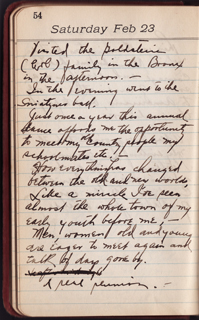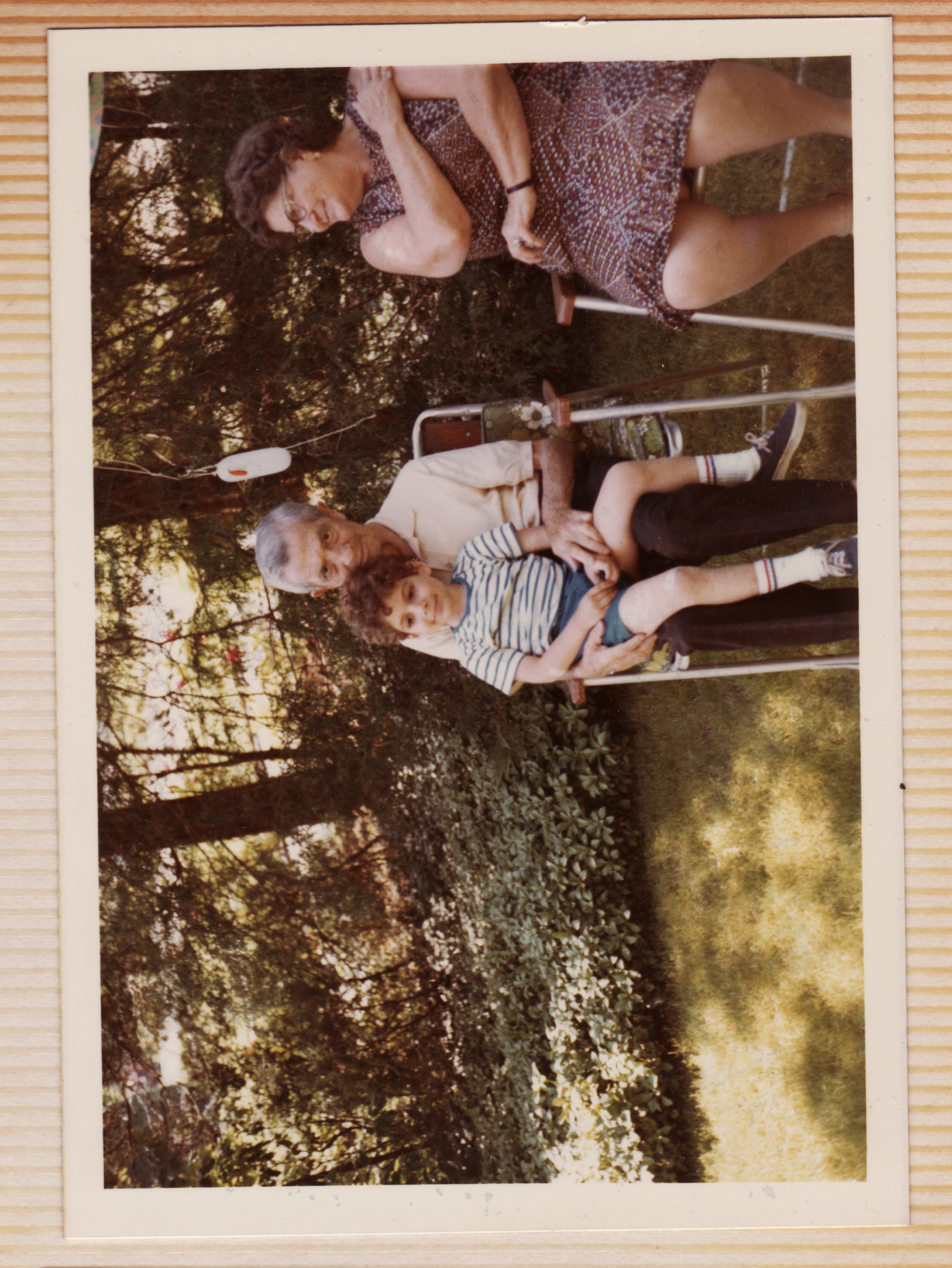
Visited the Goldsteins
(Eve) family in the Bronx
in the afternoon. —
In the evening went to the
Sniatyner ball.
Just once a year this annual
dance affords me the opportunity
to meet my country people my
schoolmates etc. —
How everything has changed
between the old and new worlds,
Like a miracle I’ve seen
almost the whole town of my
early youth before me, —
Men, women old and young
are eager to meet again and
talk of days gone by.
A real renunion. —
——————-
Matt’s Notes
I’m often amazed at how Papa conveys so much emotion in so few words. Even his cheerful account of the Sniatyner ball quietly hums with wistfulness and homesickness, each bright note enfolded in a low, minor chord. He may be sentimental, but his prose style can be a real study in economy.
The Sniatyner Ball was most likely organized by a Sniatyn-oriented landsmanshaft, or mutual aid society geared toward immigrants from the same place (I wrote a bit about landsmanshaftn, and the ways they provided health care, burial services and credit to their members, in an earlier post). I think Papa relied mostly on his fraternal order, B’nai Zion, for these kinds of services, but the Sniatyn landsmanshaft obviously played a part in his life.
Interestingly, the landsmanshaft appears to have survived in the form of the United Sniatyner Sick and Benevolent Society, which still provides benefits and holds regular gatherings for descendants of Sniatyn Jews. (If you want to know more you can write to its president, Michael Steinhorn, at msteinhorn ‘at’ comcast.net.) I’m grateful to them for recently pointing me toward a copy of Papa’s 1917 draft registration form at ancestry.com. Check it out:

Some highlights include Papa’s 1917 address (136 Rivington Street) and his workplace (Majestic Neckwear at 44 Walker Street, no doubt where Papa met Tillie, the woman who declared her love for him on the trolley a few weeks back). The form is hard to read so I’m inferring a bit, but it looks like Papa, who was a pacifist, may have courted a bid for ineligibility by pointing out that he had “bad feet” and was the sole supporter of his sister Clara. One family story even has him losing lots of weight before his draft examination so he’d appear sickly and weak, but it’s hard to confirm. Stay tuned.

